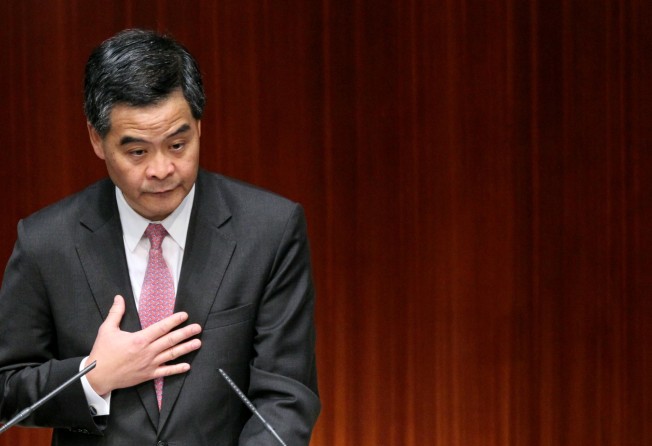Anti-Leung Chun-ying ad a smear tactic, says pro-government paper

A pro-government newspaper in Hong Kong on Wednesday hit back at an anti-Leung Chun-ying advertisement published in Hong Kong and Taiwan, condemning it as a smear tactic by the city’s pro-democracy groups against the mainland.
The advertisement, published in two Hong Kong newspapers and The Liberty Times in Taiwan on Tuesday, was signed by 300 Hongkongers. They accused the chief executive of “mainlandising” Hong Kong.
They called for Leung to step down, saying his policies jeopardised the city’s interest.
In its editorial on Wednesday, Wenweipo condemned the ad as an effort by pan-democrats and advocates of independence for Hong Kong to smear the “one-country, two-systems” formula. Beijing considers the formula a potential template for Taiwan’s unification with the mainland.
“The most disturbing thing is that the opposition figures intentionally published the ad in both Hong Kong and Taiwan newspapers. They addressed it to ‘the government and people of Taiwan’ and asked Taiwan to ‘learn’ from Hong Kong’s example,” Wenweipo said.
“The opposition and independence advocates bent the facts... Their aim was to fuel a pro-independence movement in Taiwan. This seriously hurts the core interests of [China],” it said.
The pro-government camp regularly describes the pan-democratic camp as "the opposiiton".
We hope to raise awareness among Taiwan people through Hong Kong’s experiences and alert them to this mainlandisation
Leung on Tuesday dismissed the ad's accusations that he was jeopardising the city’s interests and “mainlandising” Hong Kong, saying he always put Hong Kong people first when developing policy. He also described the publishing of the ad as an “incomprehensible” move.
Tam Hoi-pong, an activist who co-organised the ad's publication, responded to Leung’s remarks on Wednesday, saying Taiwan was now facing a similar influx of mainland visitors as Hong Kong had after it opened up tourism to the mainland.
“We hope to raise awareness among Taiwan people through Hong Kong’s experiences and alert them to this mainlandisation,” he said.